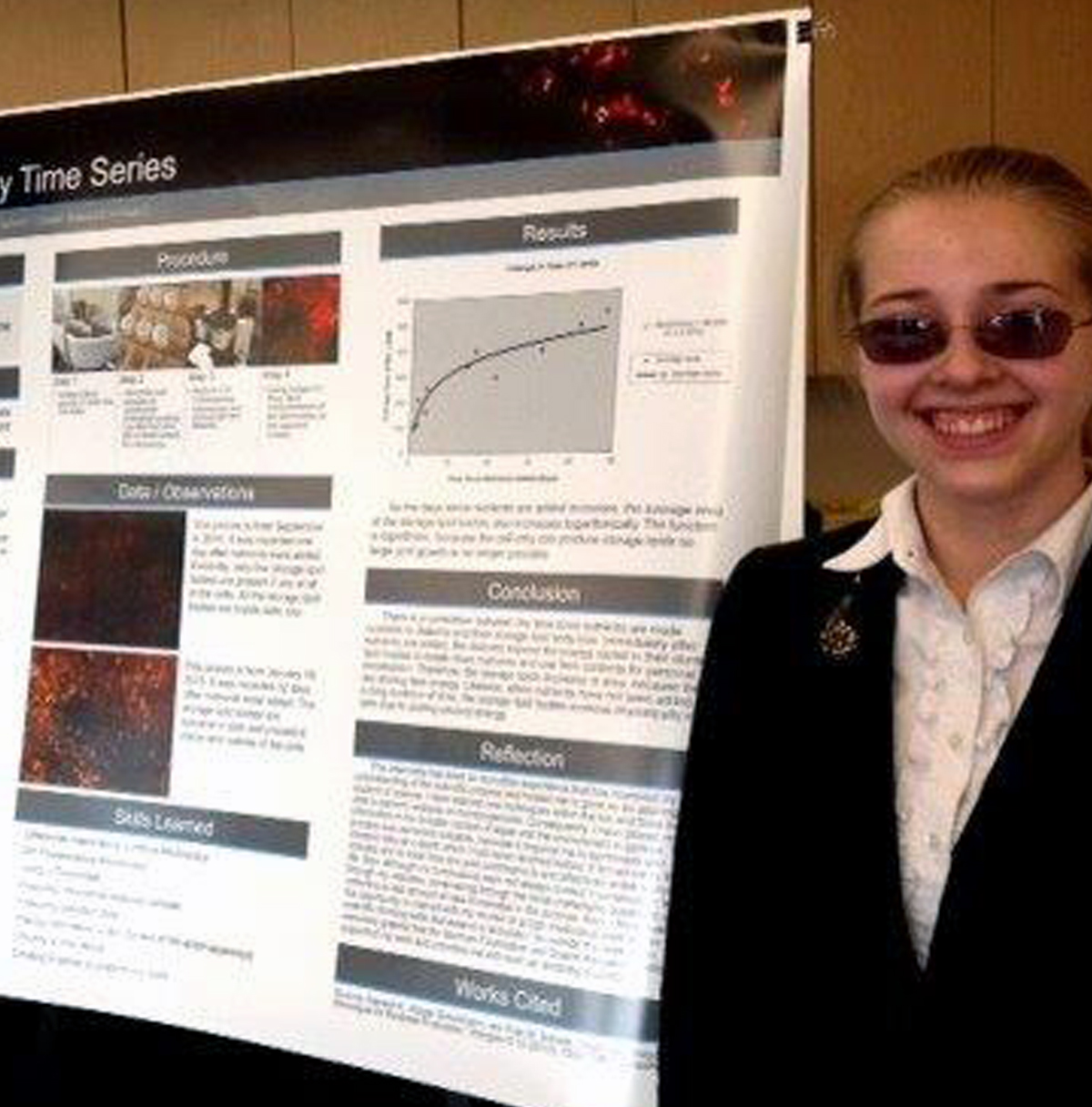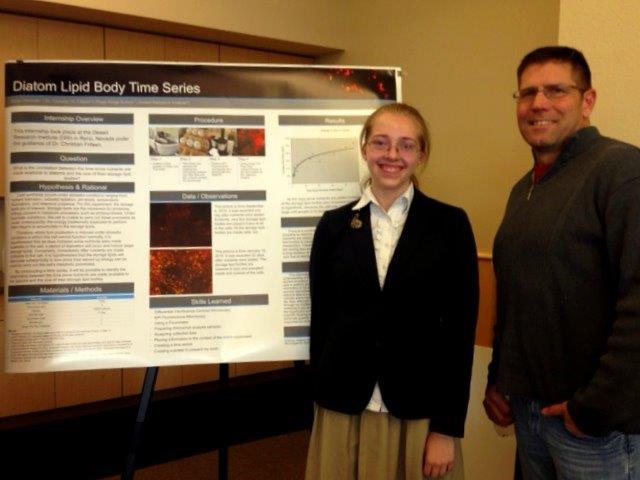Elyse Olesinski

The Desert Research Institute (DRI) is an environmental research center in Nevada with a campus in Reno and Las Vegas. I learned about an opportunity to intern at the Reno branch from my science teacher. She put me in touch with the mission and purpose of Mentors which funded my work and facilitated the internship with Desert Research Institute, Nevada.
My interests include playing the piano and running cross-country. Also, I enjoy writing short stories and music in my spare time. My greatest interests, however, are my deep curiosity about molecular biology and genomics and my passion for protecting the environment. In college I plan to pursue genomic research and become a medical practitioner through an MD-PhD. degree, which will enable me to help people in two ways: I will physically treat ill people while also working to find solutions to the diseases they face every day. Also, I hope to spread awareness about the deterioration of ecosystems and the environment as well as advocate for grassroots efforts and campaigns to stop the decline in its tracks.
After, I toured the DRI campus. I saw Ecopods (containers easily manipulated for growing plants under different conditions), the mixed algal consortia raceway in the greenhouse (which I later would base my experiment off), and Dr. Christian H. Fritsen’s lab.
His lab was absolutely incredible. My projects included research on diatoms to account for certain storage lipid sizes under certain conditions. I analyzed photos, constructed a times series, and made a logarithmic regression to present this information.

